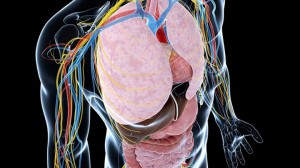From the First Letter to the Corinthians:
What I am saying, brothers and sisters, is this: flesh and blood cannot inherit the kingdom of God, nor does the perishable inherit the imperishable.
(From the Daily Office Lectionary – 1 Corinthians 15:50 (NRSV) – April 24, 2014.)
 I think I know what Paul is trying to say here, but I don’t like the way he’s saying it. I mean, I really have a theological issue with the assertion that “flesh and blood cannot inherit the kingdom of God.” I think the statement is just plain wrong. It states a dualism that relegates the material, specifically the human body, to realm of the damned, the unclean, the unworthy. In light of a creation story in which the Creator “saw everything that he had made [including that human flesh and blood], and indeed, it was very good,” I cannot accept the condemnation of our material being.
I think I know what Paul is trying to say here, but I don’t like the way he’s saying it. I mean, I really have a theological issue with the assertion that “flesh and blood cannot inherit the kingdom of God.” I think the statement is just plain wrong. It states a dualism that relegates the material, specifically the human body, to realm of the damned, the unclean, the unworthy. In light of a creation story in which the Creator “saw everything that he had made [including that human flesh and blood], and indeed, it was very good,” I cannot accept the condemnation of our material being.
We have in our scriptural tradition an understanding that there have been human beings bodily “ascended” into the spiritual realms. “Elijah, because of great zeal for the law, was taken up into heaven,” says the First Book of Maccabees (1 Mac 2:58), and that is what Second Book of Kings describes: “Elijah ascended in a whirlwind into heaven.” Elisha watched it happen and kept staring up until he could no longer see his master. (2 Kg 2:11-12) And then there is Enoch who “walked with God; then he was no more, because God took him,” (Gen 5:24) a statement which has always been understood to mean that he was taken, flesh and blood, into God’s eternal Presence.
Of even greater significance is the Ascension of Christ! As the Apostles stood “watching, he was lifted up, and a cloud took him out of their sight,” and then a couple of angels assured them that he had “been taken up from you into heaven.” (Acts 1:9,11) This was Jesus in the same body that had been executed! That body still bore the wounds of crucifixion; he had invited Thomas, “Put your finger here and see my hands. Reach out your hand and put it in my side.” (Jn 20:27) That flesh-and-blood body which ascended had sat at table with his friends; after his Resurrection, that same flesh-and-blood body had eaten a piece of honey and shared some grilled fish. Paul goes on and on about earthly bodies and heavenly bodies, physical bodies and spiritual bodies, perishable bodies and imperishable bodies . . . but Jesus lived, died, rose, and ascended in one and same body!
I’m rather fond of the body I’ve lived in. It’s fat and out of shape and, truth be told, I wish it were better looking! But I’ve done a lot of stuff with this body and, like Henry Higgins with regard to Eliza Dolittle’s face, I’ve grown accustomed to it. It has been useful — it’s climbed holy mountains and visited sacred places; it’s lifted babies from their cribs and cuddled them; it’s hugged my wife and children; it’s helped old people into and out of bed; it’s held the hands of dying parents; it’s fed the hungry and built shelters for the homeless; it’s stood at the altar of God and ministered the Flesh and Blood of Christ. This flesh and blood has done some holy things. If I’m going to be gifted with life eternal, I’ll be happy to do so in this flesh and blood that has served me well, and with which I have done my best to serve God and God’s people.
I think I know what Paul was trying to say, but I wish he’d found a different way to say it because I think what he said is just wrong. Flesh and blood can inherit the kingdom of God. Indeed, I believe that flesh and blood have already inherited the kingdom of God. Here and now.
====================
A request to my readers: I’m trying to build the readership of this blog and I’d very much appreciate your help in doing so. If you find something here that is of value, please share it with others. If you are on Facebook, “like” the posts on your page so others can see them. If you are following me on Twitter, please “retweet” the notices of these meditations. If you have a blog of your own, please include mine in your links (a favor I will gladly reciprocate). Many thanks!
====================
Father Funston is the rector of St. Paul’s Episcopal Church, Medina, Ohio.



Leave a Reply